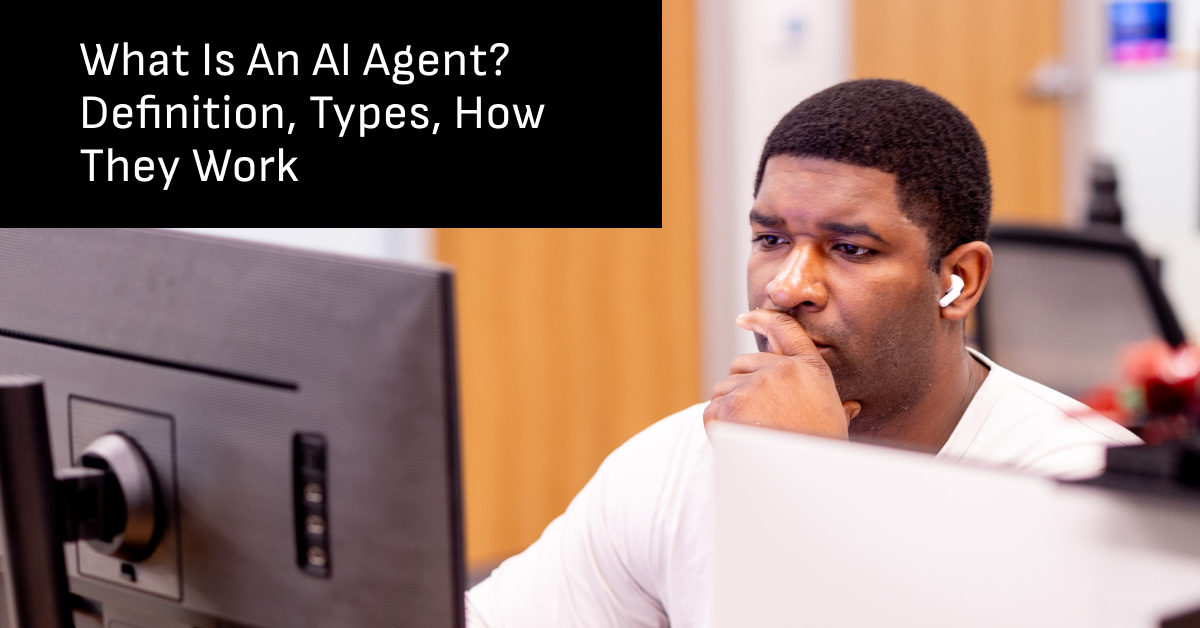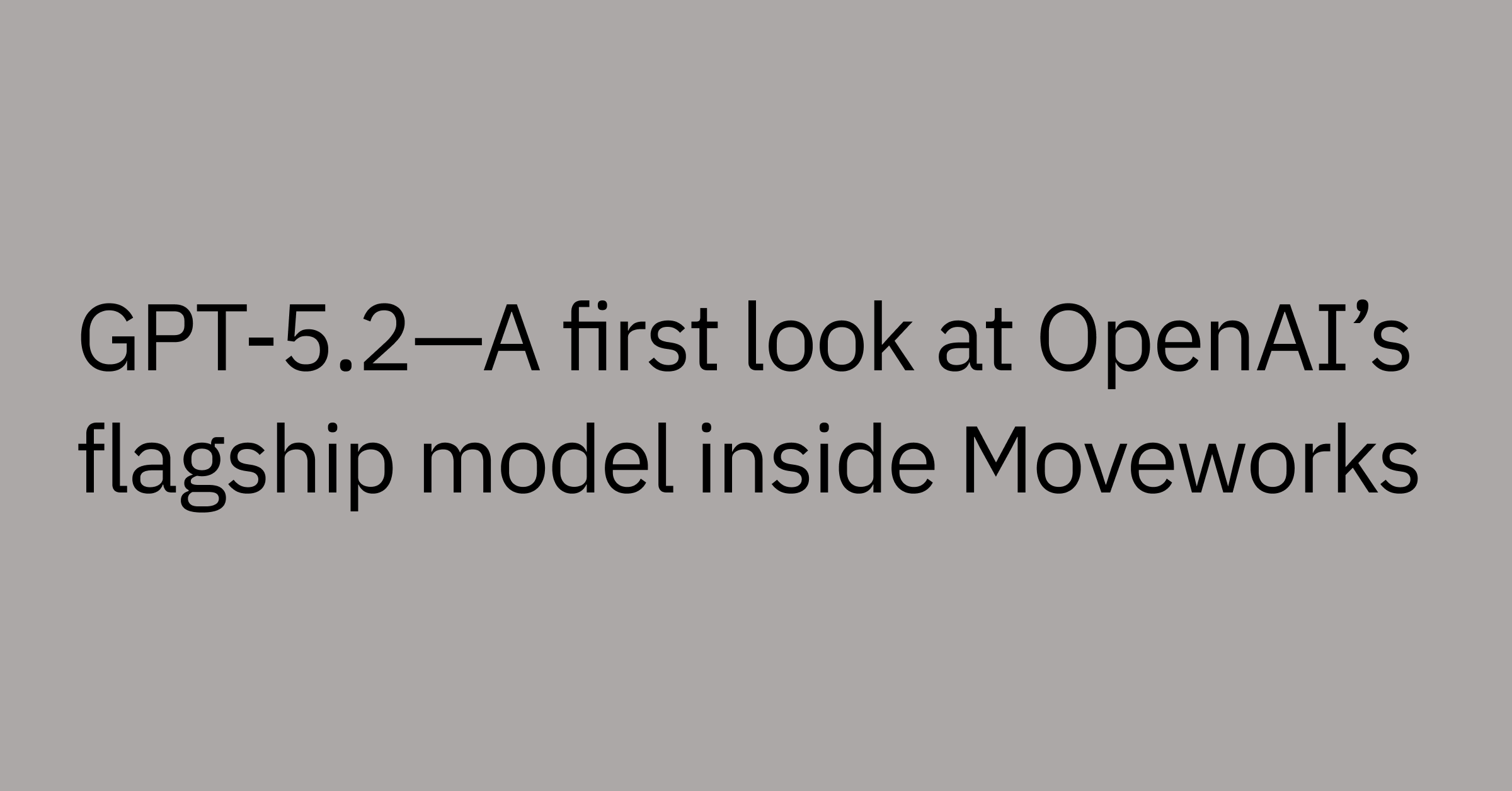Table of contents
AI agents are no longer just a futuristic concept — they're here, and they’re changing the way businesses operate. With as many as 82% of organizations expected to integrate AI agents in the next few years, now is the time to explore how they can help you:
- Streamline your workflows
- Boost productivity
- Make smarter decisions
Think about it: marketing content produced on demand, vast datasets analyzed in seconds, and instant answers to your workplace questions — all with a single click.
These aren’t just theoretical use cases. They’re happening right now.
Now, imagine an AI-powered assistant that doesn’t just retrieve information but actually takes action — pulling data from multiple enterprise systems, proactively fixing software issues, or automating repetitive HR tasks.
AI agents go beyond basic, rigid automations to give you the power to work smarter, faster, flexibly, and more efficiently.
So, what exactly is an AI agent, and how can it transform the way you work? Let’s dive in.
What is an AI agent, and how is it different from other AI?
AI agents, are a new form of artificial intelligence that can reason, act, learn, and improve independently. They can understand user needs and independently take steps to help them reach their goals.
“Agentic AI” is a system that is composed of multiple AI agents that collaborate to achieve a common objective. These powerful agentic systems can tackle complex tasks and deliver smarter results than traditional and generative AI solutions.
While agentic and non-agentic AI share some technological similarities, there is a clear distinction between them:
- Traditional AI (non-agentic AI): Traditional and generative AI tools rely on passive forms of intelligence. Many of these solutions use natural language processing and rule-based programming that requires specific user input to generate responses.
A good example of a non-agentic AI tool is an image or content-generation platform. Before these tools can provide results, they first need clear written instructions on what types of tasks to perform.
- Agentic AI: Unlike other forms of artificial intelligence, agentic AI is proactive. The technology combines large language models (LLMs) and reasoning engines to interact with and learn from its integrated environment.
You’re probably already using agentic AI without realizing it. Some common examples of agentic AI include:
- Smart thermostats that read both internal and external temperatures, monitoring daily temperature adjustments, then automatically adjusting to user preferences
- User recommendation systems found on ecommerce websites and streaming services that provide relevant and improved suggestions based on viewing or browsing history
- Self-driving cars that monitor road conditions through sensors and cameras, continuously analyzing this information, while avoiding obstacles and making driving decisions
What makes an AI agent different?
It's easy to get confused when comparing different AI tools. However, AI agents have unique characteristics that differentiate them from other solutions, including:
- Proactive execution: AI agents don't need to wait for triggers or rules to execute processes. They can work independently behind the scenes and within a much larger scope than other AI tools.
- Goal-orientation: A unique feature of agentic AI is its ability to set and achieve its own goals. When given a larger task, AI agents can systematically create granular objectives to help them achieve the larger goal quickly and efficiently.
- Problem-solving capabilities: Unlike traditional AI tools, agentic AI solutions are capable of advanced reasoning and active problem-solving. This allows them to extract valuable context from their environments and apply new strategies for tackling more complicated tasks.
- Autonomous adaptation: AI agents are largely autonomous and can learn from the outcomes of their actions. Over time, AI agents process and analyze information to improve their performance and create more accurate and efficient results.
See how intelligent AI agents can transform your business operations.
Key characteristics and components of an AI agent
Most people view automation as an easy way to handle repetitive or time-consuming tasks. And this is true, especially when executing workflows that have limited variability.
But what happens when you want to automate processes with more dynamic inputs and outputs? AI agents are the answer.
Simpler technologies, like chatbots, provide a form of automation, but they still typically require some human intervention. Depending on the type of AI model or data source used, they're also more limited in scope.
AI agents, on the other hand, use advanced algorithms and continuous learning capabilities to automate tasks, solve complicated problems, and optimize outputs independently.
The flexibility of AI agents is a result of their three core components:
Information sensors: Taking in information allows AI agents to perceive and interpret the world around them, whether through physical sensors, like cameras or motion detectors, or virtual data inputs, such as system logs and user interactions.
A control center (i.e. brain): Uses machine learning algorithms and LLMs to analyze the gathered data and support decision-making logic to drive the agent's actions.
Effectors: These allow the AI tools to interact with or influence the environment they’re in — whether physical actions like moving robotic arms or digital actions like adjusting system settings or responding to user queries.
How do AI agents work?
One of the features that distinguishes agentic AI from other automation tools is its ability to collect, process, and act on information without direct instruction. Because of this capability, AI agents aren't limited by rigid rules or predefined workflows. Other automation approaches, like Robotic Process Automation, use follow predefined, rule-based workflows with limited adaptability or learning abilities.
By combining their "always-active" adaptive reasoning and learning capabilities, AI agents can provide you with an entirely new level of intelligent automation.
Analyze data to understand patterns and context
For AI agents to work independently, they need relevant datasets to operate. The advantage of agentic AI is its flexibility in handling various types of data without the stringent structural requirements often needed by other AI tools. AI agents can collect and process everything from documents and emails to images and sensor data.
AI agents analyze the information they find to identify patterns and gain additional context about the data. The insights they extract help improve decision-making processes regarding which goals to set and which paths to take to achieve them.
Although agentic AI can operate autonomously, many newer solutions also incorporate a messaging interface that enables users to engage directly with the AI agents. This allows you to provide the agents with additional instructions or understand the reasoning behind specific actions taken.
Use advanced reasoning to make autonomous decisions
Autonomous agents reason in a similar way that human agents would: based on their past experiences and the resources available to them.
The difference is that agentic AI can execute certain processes and course-correct much quicker than humans can. For instance, it can detect anomalies in real-time data streams and adjust its actions immediately, something that would take a human significantly longer.
It can also adapt in real-time to carry out a wider range of functions, while basic AI solutions are typically limited to a single purpose or rigid workflows.
What enables this level of autonomous decision-making in AI agents? It comes from the agent's connectivity with different data sources, systems, and applications, made possible by application programming interfaces (APIs).
APIs provide the critical link that allows AI agents to access and integrate relevant information from multiple platforms, enabling them to access the comprehensive data they need to execute their tasks effectively and efficiently.
Types of AI agents
When considering where and how to implement AI agents in your business, it's important to know that there are multiple types to choose from. Below are the five most common AI agent types available:
- Reflex: A reflex AI agent is the most basic form, often used for customer service chatbots. These agents work within a predefined set of rules and available data, and they usually reference a knowledge base with pre-written answers to common customer inquiries.
- Goal-based: As the name suggests, goal-based agents plan and execute a set of specific goals. Vehicle GPS systems are a perfect example of this at work. A driver provides their final destination, and the AI agent calculates which route to take based on traffic conditions and distance.
- Learning: Certain AI agents can learn and adapt over time, leaning on their previous experiences as a primary performance element. Many intelligent software solutions leverage learning agents to function. Email spam filters, for example, rely on accurate feedback from users to learn which types of emails to flag as suspicious.
- Utility-based: Utility-based agents focus strictly on maximizing a specific utility function or output. For example, if you’re looking online for the cheapest flights, utility-based agents can find the best results without considering variables like distance, airline, or passenger count.
- Hierarchical: Hierarchical agent systems, like autonomous delivery systems, deconstruct much larger processes and delegate specific tasks to multiple agents at once. While each agent operates independently, they report their statuses to one another to ensure effective task completion. Different agents work together to complete a customer order, handling order processing, warehouse picking, shipment planning, and GPS tracking.
Benefits of AI agents
There are many different reasons why you should consider using AI agents, starting with the benefits below:
- Reclaim your time: AI agents can automate a wide range of tasks, giving you more time for what matters most.
- Handle more complicated workloads: By leveraging AI agents, you can offload many multi-step processes or time-intensive tasks to highly capable automation.
- Reduce human error: AI agents help enable greater accuracy and reduce the chances of human error.
- Make more use of available data: AI agents can locate digital assets in seconds while leveraging them to produce better results.
Customize your AI experience: AI agents are highly customizable, enabling you to create a fully personalized task automation experience.
Why businesses are adopting AI agents and leveraging agentic AI
When running a business, it's important to keep your operations as streamlined yet cost-effective as possible. AI agents balance this need by providing you with a path to efficient business growth. They help you build the foundation for a comprehensive, unified agentic AI solution for your organization.
Agentic AI solutions can coordinate and optimize the efforts of your automations and AI agents, while providing ongoing flexibility with tasks and workflows.
Businesses across industries can use agentic AI to:
- Reduce overhead: Agentic AI solutions can minimize the time employees spend on time-consuming tasks, allowing them to achieve more for the company while reducing strain on staffing budgets.
- Improve accuracy: AI agents can handle repetitive tasks with high precision and consistency, helping to minimize human error and improving the quality of their outputs.
- Deliver better customer experiences: Agentic AI solutions operate behind the scenes and around the clock, allowing businesses to provide personalized interactions and ongoing customer and employee support 24/7.
- Increase agility: By analyzing large amounts of data and uncovering valuable insights related to market conditions and customer demands, agentic AI solutions help businesses stay more agile and competitive.
Real-world examples of AI agents at work
Regardless of your business size or industry, there are many use cases for AI agents, from streamlining HR processes and data management to simplifying IT tasks and maximizing employee support.
Hire and onboard new employees
Employee recruitment is a time-consuming and costly business expense. AI agents can completely transform your hiring and onboarding efforts by reducing the manual time and effort required.
When sourcing potential job candidates, AI agents quickly organize and prioritize resumes based on which skill sets and work experiences likely provide the best fit for the organization.
They can also automate the process of submitting employee referrals, creating employee verification letters, and even providing step-by-step onboarding instructions for new employees.
By handling these routine recruitment tasks, AI agents free up your HR team's time to support other important company initiatives.
Keep information updated effortlessly
For businesses to operate effectively, it's important that the data used across various systems and applications is as accurate, secure, and updated as possible. However, manual data entry and database management are often prone to human error which can introduce vulnerabilities.
AI agents can automatically index new data across disparate sources from across your tech stack while monitoring for necessary updates in real time, helping to enhance both accuracy and security.
Maintaining this level of data integrity also helps enable compliance with various legal and regulatory requirements.
Resolve technology issues with service desk automation
IT support issues can add up quickly as a business scales. As support tickets grow and resolution times increase, employees and customers pay the price.
AI agents can be an ideal way to resolve your business's technology issues and add much-needed relief to busy IT teams. Agentic AI solutions can autonomously complete tasks like:
- Answering routine service questions
- Resetting user passwords
- Configuring new software
- Providing access permissions to systems and databases
Leveraging AI agents to create a self-service solution for employees lets them receive instant support right when they need it and helps to maximize their productivity throughout the day.
Unlock efficiency with AI agents
AI agents aren’t just a productivity hack — they also have the potential to reshape entire industries.
Business departments from across IT, HR, customer support, and beyond are using them to automate complex tasks, increase efficiency, and provide real-time support.
These AI agents can integrate seamlessly into enterprise systems to reduce bottlenecks and streamline operations.
By using a unified agentic AI solution like Moveworks AI Assistant, you can:
- Automate support requests: Minimize backlogs—AI agents resolve many kinds of IT and HR requests instantly.
- Improve data accuracy: Keep information up to date across systems with little manual intervention.
- Deliver 24/7 employee support: AI agents work around the clock, and can handle requests in seconds.
- Scale operations effortlessly: As your business grows, AI agents help reduce overhead while maintaining efficiency.
With the power of AI agents, your organization can better interact dynamically with users, adapt to various tasks, and provide personalized, real-time assistance, making your support and automations more versatile and user-friendly.
Ready to see how your enterprise can use agentic AI? Download our guide to getting started with agentic automation or sign up for a demo today.



